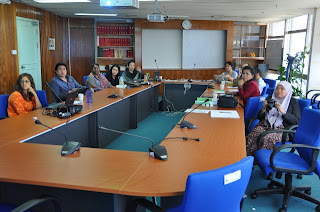 |
| Credit: SUARA / BEFF |
Since its inception in 2011, the Borneo Eco Film Festival (BEFF) has run a training programme for aspiring community filmmakers called SUARA ("voice" in Bahasa Malaysia). In 2014, four workshops were held throughout the year, culminating in a five-day intensive workshop from 29 October to 2 November at the Sabah Forestry Department's district office at Lok Kawi.
There were over 40 participants from 24 villages and towns across Sabah, who learned practical skills in storytelling, pre-production, filming, and post-production. By the end of the workshop, each of the seven groups conceptualised and produced their own short film (including on topics such as Indigenous Rungus beadwork and the journey of a young urban Indigenous man from the forests of northern Sabah). Two of the films have been selected for public screening at the upcoming Centenary celebrations of the Sabah Forestry Department in the week of 9 November 2014. Congratulations to all of the participants and thanks to the many sponsors, supporters, and volunteers. For more information, check out local media coverage in Sabahkini and the Daily Express.


.jpg)

.jpg)


.jpg)
.jpg)




.jpg)
.jpg)


